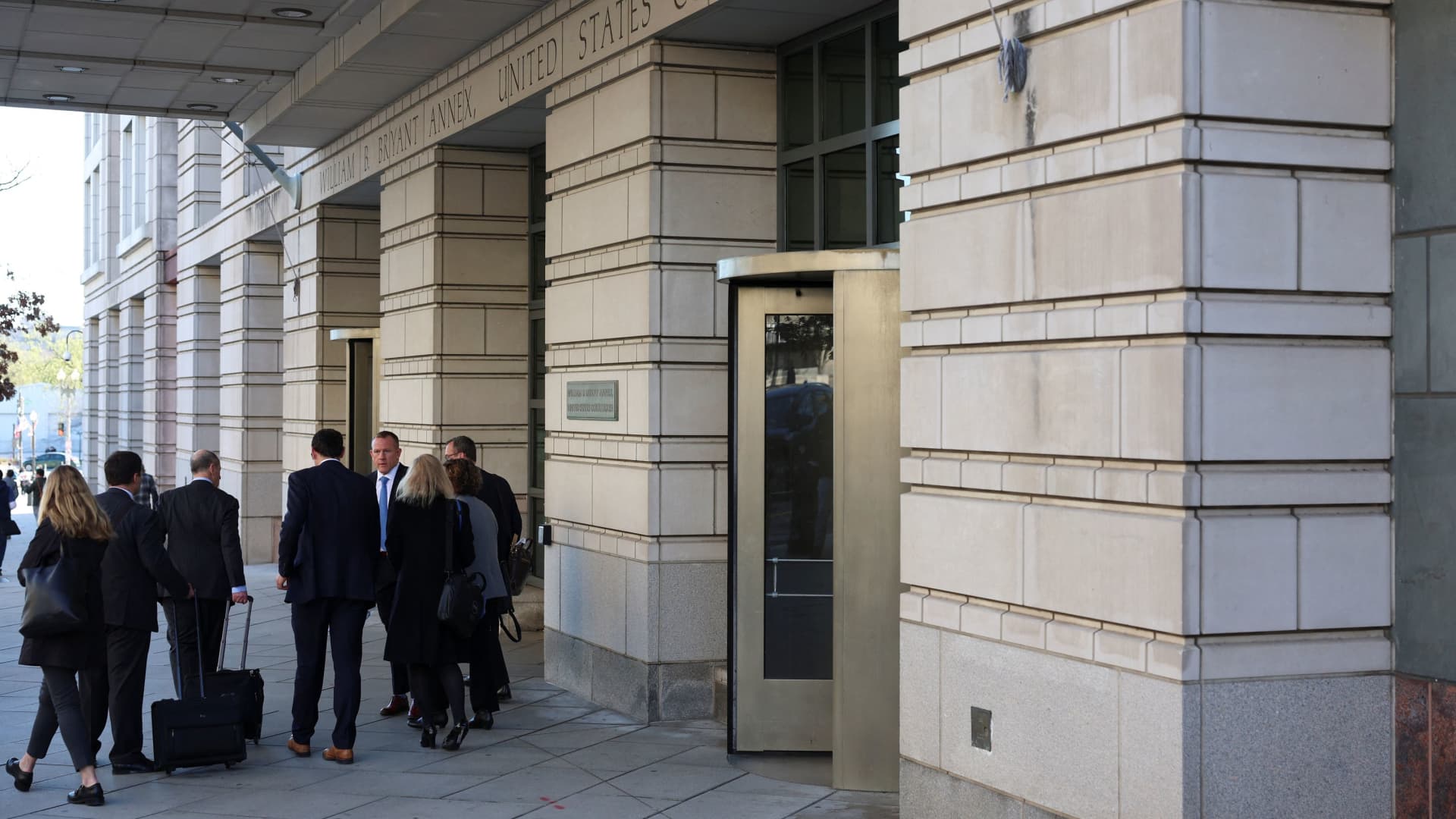AP’s members leave the U.S. District Court, on the day a judge hears arguments in the Associated Press’ (AP) bid to restore access for its journalists to cover press events aboard Air Force One and at the White House, after the Trump administration barred the news agency for continuing to refer to the Gulf of Mexico, now Gulf of America, in its coverage, in Washington, D.C., U.S., March 27, 2025.
Tom Brenner | Reuters
A federal judge on Tuesday ruled that the White House cannot bar Associated Press reporters and photographers from the Oval Office, Air Force One, and other secure spaces where journalists from other media outlets are admitted.
District Court Judge Trevor McFadden in an order said that the White House’s blocking access to AP journalists to those tightly controlled spaces with President Donald Trump is “contrary to the First Amendment” of the U.S. Constitution.
McFadden, who was appointed to the bench by Trump, stayed his order requiring the White House to restore access from taking effect until Sunday, to give the White House time to appeal the ruling.
The White House “sharply curtailed” the 179-year-old wire service access to media events with Trump in mid-February after the president renamed the Gulf of Mexico the “Gulf of America” and the AP did not reflect that change in its references to that body of water, McFadden noted in his ruling in U.S. District Court in Washington, D.C.
“The Court does not order the Government to grant the AP permanent access to the Oval Office, the East Room, or any other media event,” wrote the judge.
“It does not bestow special treatment upon the AP. Indeed, the AP is not necessarily entitled to the ‘first in line every time’ permanent press pool access it enjoyed under the WHCA [White House Correspondents’ Association],” the judge wrote.
“The Court simply holds that under the First Amendment, if the Government opens its doors to some journalists — be it to the Oval Office, the East Room, or elsewhere — it cannot then shut those doors to other journalists because of their viewpoints,” McFadden wrote. “The Constitution requires no less.”
The AP had sued to regain its longstanding access to spaces in the White House and Air Force One.
The White House did not immediately respond to a request for comment on McFadden’s ruling.
AP spokesperson Lauren Easton, in a statement, said, “We are gratified by the court’s decision.”
“Today’s ruling affirms the fundamental right of the press and public to speak freely without government retaliation,” Easton said. “This is a freedom guaranteed for all Americans in the U.S. Constitution.”
“We look forward to continuing to provide factual, nonpartisan and independent coverage of the White House for billions of people around the world,” she said.
This is breaking news. Please refresh for updates.
